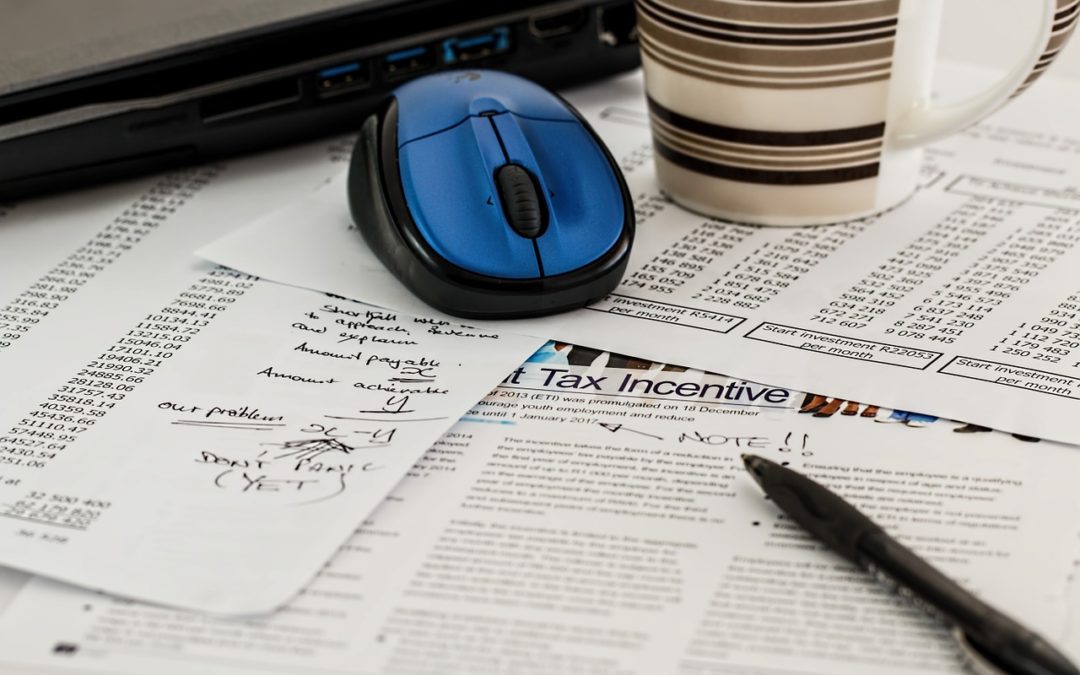For small businesses, taxes can be one of the most stressful things you do near the end of the year. Whether you are a sole proprietor or partnership, unincorporated or incorporated these small business tax tips will help you. The goals of this article include a wide array of topics. For example, increasing deductions, understanding tax credits and tips on how to organize your business to optimize filing when tax time comes.
Get your documents in order
This step is one of the best ways to begin planning your taxes for your business in an efficient way. Being organized also allows you to find documents containing any deadlines you may have. This will prevent you from receiving a punishment with higher taxes and will also lower your stress. Also having a system of reviewing any CRA deadlines you may have will also help reduce stress and get your payments done on time.
Some other steps are you can strive to make a paperless office and review your filing system for your documents. This organization will allow you to review any new documentation in an efficient manner. Refund cheques and any documentation that requires more information will also be easier to find. An accountant will be useful for any documents from the CRA that are hard to decipher. Penalties for not making tax payments can include freezing a bank account. This is bad for any bank account but is also especially bad for any account that is currently gaining interest.
Know what small business tax deductions and credits are available
Be aware of your instalment payments
Any instalment payment you ignore can be quite punishing. This can include punitive interest and penalty charges. The penalty charge is only applied if your instalment interest is over $1,000. So making your instalments, what they are and their due dates is imperative. An accountant will be able to help you keep track of these deadlines.
There are many different instalments that are applicable. These include GST, personal income tax, sole proprietor or partnership tax, corporation tax, and more. The Canadian Revenue Agency generally will inform you of what instalment amounts you owe.
Also, they will inform you of deadlines for personal tax returns including unincorporated small businesses. But, to calculate GST, you use your previous year’s filing. If you had GST exceeding $3,000 in the previous year, then instalment payments happen quarterly and amount to a quarter of the previous year’s total. If you incorporate, those instalments are also based on having an amount over $3,000. If you are looking for deadlines, this page on CRA’s website will assist you.
Buy supplies and capital assets before fiscal year-end
Should you find yourself close to the end of the fiscal year and are deciding when to buy supplies or capital assets, buy them before the year-end. This provides the benefit of allowing you to expense some or all the expenses on your taxes. For capital assets, you are unable to fully expense the item in the first year and they must depreciate. As a result, you are able to get part of the item expensed, and you are also able to get the first-year depreciation deduction.
For example, computers or any furniture you may need are capital assets and you cannot expense them all in one year. If you wish to know various types of depreciable property, this page on the CRA list different classes of capital assets. We know this is hard to keep track of so we recommend hiring an bookkeeper to keep track of what you can expense and your capital assets.
Provide year-end bonuses
Should you be in the favourable position to have excess profit, providing year-end bonuses is a great way to reduce that profit and as a result, reduce your taxes. Also, the CRA allows businesses to declare during the current fiscal year any bonuses. You can also pay them the following year if it is within six months of the declaration date. Additionally, your business gets the benefit of the immediate tax deduction and the employee only needs to declare the bonus as income the following year.

Make investments through your corporation
Investing through your corporation and retaining funds in your corporation can be quite helpful. These advantages, should you be fortunate to earn excess income, allow you to reduce your taxes. For example, any funds that would you withdraw as salary or dividends you can invest, allowing you to defer taxes on those funds in your corporation.
This also has the benefit of reducing your personal taxes but you still need to pay corporate taxes. The reduction in personal taxes can be as high as 50% depending on the province you are in. Also, your retained earnings allow you to invest using different strategies resulting in interest, dividends or capital gains. One thing of note is that corporate tax rates can be as high as 50% but allows large tax deferrals on the principal.
Use a TFSA and RRSP for your savings
TFSA
RRSP
TFSA and RRSP comparison
-
Any TFSA contributions you make are after your income has already been taxed
-
You do not receive a tax deduction by contributing to a TFSA
-
An RRSP provides a tax deduction based on 18% of your income that has not been taxed yet or the current RRSP deduction limit, whichever is lower.
-
Any investment earnings through your TFSA are not taxable
-
An RRSP requires you to be 71 years old before you can withdraw any money from the RRSP.
-
When you turn 71, you withdraw the money in the RRSP in a lump sum. But, instead of that, you can convert the RRSP to a Registered Retirement Income Fund (RRIF). The lump-sum option applies a withholding tax on the amount withdrawn. Converting to an RRIF is tax-free and requires you to make minimum withdrawals from it which is taxable.

Reduce taxes through donations
A great way to not only feel good is to donate. You also get the added benefit of the donation being tax-deductible. One caveat is that if you want your donation to be tax-deductible, you must donate to a Canadian-based charity.
Write off inventory and balances
There are many times when a customer’s balance is unobtainable whether they have not paid or will not pay. Or you have inventory that may not be worth selling anymore. This can be because the inventory items are obsolete or damaged. Any balance you have determined will not be recoverable, you will be able to write off the account receivable as bad debts. You must reverse any sales taxes that you have charged to those balances to recover them.
Also, take stock of any inventory that has been reduced in value or you have determined to have no value. Those inventory items are reducible to their realizable value. The realizable value means the value you should expect to receive from the sale of the inventory item. Should you do this, it is advisable that you have backup to support the change in the value of the inventory items. This backup can come from estimates from a customer, an estimate of the fair market value from a reputable source or a price list. Reducing the value of these items means you reduce your taxable income and taxes payable.
Make sure you have the necessary funds for your taxes payable
Consider using a Health Spending Account
A Health Spending Account (HSA) allows small business owners to give employees health and dental benefits tax-free. HSAs are an attractive cost-effective way to provide health and dental benefits. But, a valid HSA plan requires it to conform to Private Health Service Plan (PHSP) rules. If you wish to sign up for a PHSP you can find out more here. Be wary of any insurance or financial planner offering sole proprietorships an HSA if they have no arm’s-length employees. Also, make sure any HSA conforms to the PHSP rules.
Is incorporating right for you?
-
Any profits and losses that your business makes reflect on your personal taxes. This means that any losses your business makes apply to your other income and any profits your business makes add to your personal income.
-
Tax rates for corporations, in general, are lower than personal income tax rates. For example, in Alberta, the corporate tax rate is 8% with a business limit of $500,000. The personal tax rate in Alberta starts at 10% and goes up from there, not including federal taxes. You can read more about Alberta tax rates here.
-
Various deductions are only available to corporations. These lower the tax rate for small businesses that qualify. You can read about small business tax deductions here.

